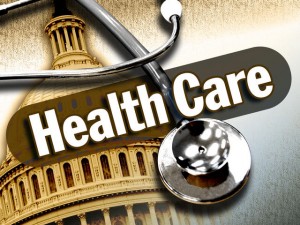Healthcare fraud and abuse affect everyone in the healthcare system and interfere with Medicare’s ability to serve future generations. To address this growing problem, the federal government continues to attempt to recover improper payments and prevent fraud. The federal government’s recovery of a record $4 billion last year from people who attempted to defraud seniors and taxpayers shows significant progress in the fight against healthcare fraud. The Affordable Care Act provides additional resources and tools to enable the Centers for Medicare & Medicaid Services (CMS) to expand efforts to prevent and fight fraud, waste, and abuse. Let’s discuss the Fraud Prevention Initiative.
Fraud Prevention Initiative

Fraud prevention efforts focus on moving CMS to a more proactive “prevent and detect” model that will help prevent fraud and abuse before payment is made. The previous “pay and chase” scenario in recovery operations was reactionary and ineffective. A valid illustration of this pro-activity is the recent CMS announcement that, via the use of innovative predictive modeling technology, the agency will have the ability to use ‘risk scoring techniques’ to alert them to high-risk claims and providers. Consequently, action can be taken to stop payments and remove providers from the program, if necessary.
Through the Fraud Prevention Initiative, the Center for Medicare & Medicaid Services (CMS) is working to certify that correct payments are made to legitimate providers for covered, appropriate, and reasonable healthcare services.
The Affordable Care Act contains numerous provisions that support the Department of Health and Human Services (HHS), CMS, and States. These provisions will expand efforts to prevent and fight fraud, waste, and abuse in all Federal health care programs including Medicare, Medicaid, and the Children’s Health Insurance Program (CHIP). The new authorities offer more protections and new tools to keep those who are intent on committing fraud out of the programs and address fraudulent payment issues promptly to ensure the integrity of Medicare, Medicaid, and CHIP.
As CMS and states implement these provisions, the savings generated could help bring down healthcare costs for families, businesses, and governments. On January 24, 2011, HHS announced new rules authorized under the Affordable Care Act that will help Medicare, Medicaid, and CHIP reduce fraud while protecting both patients and legitimate physicians and providers.
CMS is planning to utilize analytical techniques to improve payment accuracy by identifying unusual trends that could be indicative of waste or fraud. The rules also give CMS new enforcement tools to fight fraud, such as the ability to suspend payments in cases of valid allegations of fraud. The new rules:
•Create a rigorous screening process for providers and suppliers enrolling in Medicare, Medicaid, or CHIP.
•Require a cross-termination among Federal and State health programs. This means that providers and suppliers who have had their Medicare billing privileges rescinded or whose participation has been terminated by a State Medicaid program or CHIP will be banned from all other Medicaid programs and CHIPs.
•Authorize CMS to temporarily stop enrollment of new providers and suppliers. Medicare and State agencies will be watchful of trends indicating a significant potential for health care fraud, and can temporarily stop enrollment of a category of providers or suppliers, or enrollment of new providers or suppliers in a geographic area that has been identified as high risk. In deciding whether to impose a temporary freeze, CMS will consider the effect such a cessation would have on beneficiary access to care.
•Authorize CMS to temporarily stop payments to providers and suppliers in cases of suspected fraud. Under the new rules, if there has been a credible fraud allegation, payments can be held while the investigation is being conducted.
Numerous other provisions of the Affordable Care Act support the Administration’s ongoing work to prevent and fight healthcare fraud and abuse by:
a) Incorporating sophisticated new technologies and innovative data sources. These new technologies will help to identify patterns associated with fraud and avoid paying fraudulent claims.
b) Sharing data. The law requires certain claims data from Medicare, Medicaid and CHIP, the Veterans Administration, the Department of Defense, the Social Security Disability Insurance program, and the Indian Health Service to be assimilated, facilitating agency and law enforcement officials’ ability to identify criminals and prevent fraud on a system-wide basis.
c) Expanding overpayment recovery efforts. The law expands the Recovery Audit Contractors (RACs) program, requiring RAC audits to find and recoup improper payments across Medicare Parts C and D and in Medicaid. Providers must also report and return Medicare and Medicaid overpayments within 60 days of identification.
d) Increasing penalties to discourage fraud and abuse. The law gives the HHS Secretary new authority to prevent problem providers from participating in Medicare or Medicaid.
e) Establishing tough new rules and sentences for criminals. The Affordable Care Act increases the Federal sentencing guidelines related to healthcare fraud offenses involving $1 million or more in losses to federal healthcare programs.
Yet, as important as these aggressive new initiatives are, the first and best line of defense against fraud remains the healthcare consumer and providers. Healthcare compliance saves all of us money in the long run.





